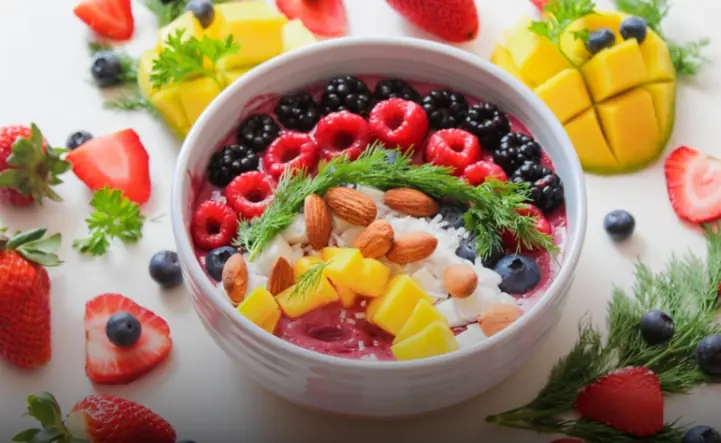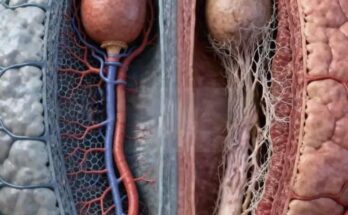
Cancer is one of the leading causes of death worldwide. But did you know that what you eat can help lower your risk? A healthy, nutrient-rich diet filled with cancer-fighting foods can not only help prevent cancer but also support your body if you’re undergoing treatment.
With so many processed and unhealthy foods available, people often wonder: “What should I eat to fight cancer?” To make it easy for you, we’ve put together a list of powerful cancer-fighting foods based on research and expert recommendations.
Best Foods to Fight Cancer
Here are some affordable, easy-to-find foods that can help protect your body from cancer:
1. Cruciferous Vegetables
These include broccoli, cabbage, and spinach—some of the best veggies for fighting cancer. They’re packed with antioxidants and anti-inflammatory compounds that help slow down or stop cancer growth.
- Broccoli: Contains sulforaphane, a powerful compound proven to fight cancer cells.
- Cabbage & Spinach: Rich in sulforaphane and indole-3-carbinol, which help stop cancer cell growth.
Tip: Eat cruciferous vegetables at least once a week to boost your health.
2. Berries
Berries are loaded with antioxidants that help protect cells from damage. Some of the best options include:
- Raspberries: May help prevent liver, colon, and breast cancer.
- Blueberries: Rich in anthocyanins, which can lower the risk of breast, colon, and prostate cancer.
- Strawberries: Contain ellagic acid, which helps fight cancer cells.
- Pomegranates: High in punicalagins, an antioxidant that reduces cancer risk.
3. Tomatoes
Tomatoes are full of lycopene, an antioxidant linked to lower risks of lung, prostate, breast, stomach, and colon cancer. Adding tomatoes to your meals can support your overall health.
4. Legumes (Beans & Lentils)
Beans are excellent for preventing colorectal cancer. Research shows that eating beans regularly can reduce tumor recurrence rates. Try adding black beans or lentils to your diet for extra protection.
5. Nuts & Seeds
Nuts and seeds provide essential nutrients that can help prevent cancer:
- Flaxseeds: Rich in omega-3s and lignans, which protect against breast and prostate cancer.
- Sunflower Seeds: High in vitamin E, reducing the risk of lung, skin, and colon cancer.
- Almonds & Walnuts: Contain antioxidants that lower the risk of breast and colon cancer.
- Pumpkin Seeds: Packed with carotenoids and lignans that help fight cancer.
6. Whole Grains
Whole grains contain fiber and antioxidants that support digestive health and may prevent cancer:
- Barley: Helps lower colon and breast cancer risk.
- Brown Rice & Oats: Provide fiber and omega-3s that protect against breast and colon cancer.
7. Fatty Fish
Fish like salmon, mackerel, sardines, and tuna are rich in omega-3 fatty acids, which help fight inflammation and lower cancer risk.
- Salmon & Tuna: May reduce the risk of liver, colon, and breast cancer.
- Mackerel & Sardines: Help prevent prostate and colon cancer.
8. Turmeric
Turmeric contains curcumin, a powerful compound that may slow cancer cell growth and reduce inflammation. While research is still ongoing, adding turmeric to your diet is a great way to boost overall health.
9. Garlic
Garlic is full of allicin, a compound known for its cancer-fighting properties. It also strengthens the immune system, making it easier for your body to fight cancer cells.
10. Carrots
Carrots contain antioxidants that may help reduce the risk of stomach, prostate, colorectal, and breast cancer. Eating them raw or lightly cooked ensures you get the most nutrients.
11. Olive Oil
A staple in the Mediterranean diet, olive oil is linked to a lower risk of breast and colorectal cancer. It’s also great for heart health, digestion, and overall well-being.
12. Cinnamon
Cinnamon has anti-cancer properties and can help regulate blood sugar levels. Research suggests it may help slow cancer cell growth and protect against colorectal and breast cancer.
13. Citrus Fruits
Oranges, lemons, and grapefruits are rich in vitamin C and antioxidants, which help reduce cancer risk by protecting cells from damage.
Nutrients That Help Fight Cancer
Certain nutrients play a key role in preventing and slowing cancer growth:
-
- Antioxidants: Found in fruits, vegetables, and nuts, these protect cells from damage.
-
- Fiber: Supports digestion and reduces colorectal cancer risk.
- Omega-3 Fatty Acids: Found in fish, flaxseeds, and walnuts, these help lower inflammation.
- Vitamin D: Helps strengthen the immune system and may reduce cancer risk.
Foods to Avoid or Limit
To lower your cancer risk, try to reduce your intake of these foods:
- Sugary foods: Can lead to obesity and increase cancer risk.
- Processed meats: Often contain preservatives linked to cancer.
- High-sodium foods: Too much salt can contribute to stomach cancer.
- Unhealthy fats: Found in fried foods and processed snacks, these can increase inflammation in the body.
Healthy Lifestyle Tips for Cancer Prevention
In addition to eating the right foods, maintaining a healthy lifestyle is crucial:
- Avoid processed foods with preservatives – Stick to fresh, whole foods.
- Eat more fruits and vegetables – They provide essential nutrients and antioxidants.
- Drink plenty of water – Staying hydrated helps flush out toxins.
- Exercise regularly – Physical activity boosts your immune system and lowers cancer risk.
- Maintain a healthy weight – Obesity is linked to many types of cancer.
- Reduce alcohol and tobacco use – Both are major cancer risk factors.
Final Thoughts
Eating a diet rich in cancer-fighting foods can help protect your health and support your body’s natural defenses. Combine good nutrition with a healthy lifestyle, and you’ll be taking powerful steps toward reducing your cancer risk and improving your overall well-being.



